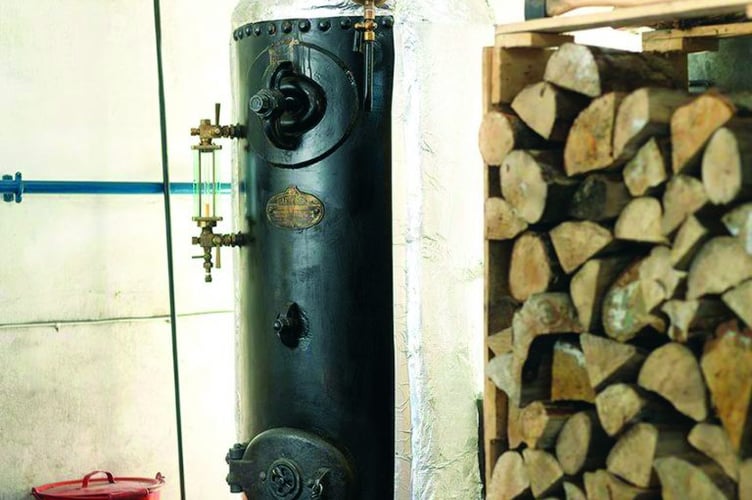SUSTAINABILITY is key to good business practice, even if you are a very popular distillers producing artisan spirits.
“It’s important to us that our customers know they are supporting a brand that gives back to its local environment, as well making changes on a wider scale that reduce our impact nationally and internationally,” said Melissa Thorn, marketing manager at Silent Pool Distillers.
“Our incredible location on the banks of the legendary Silent Pool, nestled in the heart of the Surrey Hills, is a permanent reminder of the importance of sustainability.”
The company has implemented a variety of initiatives that it’s proud of and which form the basis of the entry into the Going Circular Category of the CREST21 Business Awards.
The original 350l still, Juliette, is heated using a steam boiler, The Major, that was originally made in 1870 and used to power cranes at the Liverpool docks.
“We purchased it from a steam heritage site in Kent and repurposed it to meet our needs,” said Melissa. “It’s fired by well-seasoned local hardwood, supplied from the Albury Estate where we are situated. This keeps fuel miles to a minimum.”

The larger 1800l still, Ophelia, has a boiler that is fired by hydrogenated vegetable oil in place of red diesel. This is made by refining 100% renewable inedible waste or residue food stock, like cooking oil. This renewable fuel reduces greenhouse gas emissions by up to 90%.
As for the product itself, the Silent Pool Gin bottles and stoppers are glass, capped with recyclable tin.
“Our botanical ingredients are ethically sourced. Our juniper, for instance, is a forage crop,” said Melissa. “Silent Pool Gin contains honey which we source from a neighbouring beekeeper. This makes our honey more expensive than other options but by supporting this local supplier we have helped build the number of hives from two to 12.”
The company is due to launch a new product this month, Green Man Gin.
“Inspired by the forests of Surrey, the most heavily wooded county in England, Green Man will be packaged in a Frugal Bottle. Made from recycled paperboard, it uses 77% less plastic and has a carbon footprint of four times less than a lightweight glass bottle,” Melissa explained.
Packaging and delivery are considered from a sustainable viewpoint as well.
“The packaging peanuts we use in direct-to-consumer orders from our website are 100% biodegradable, you could even eat them if you wanted – although, we don’t suggest it. If possible, we only ship when we have a full truck load,” said Melissa.
“We’ve began working with a new Surrey start up, EcoCarry for our local deliveries. They offer climate positive delivery services and plant a tree for every delivery they make.”




